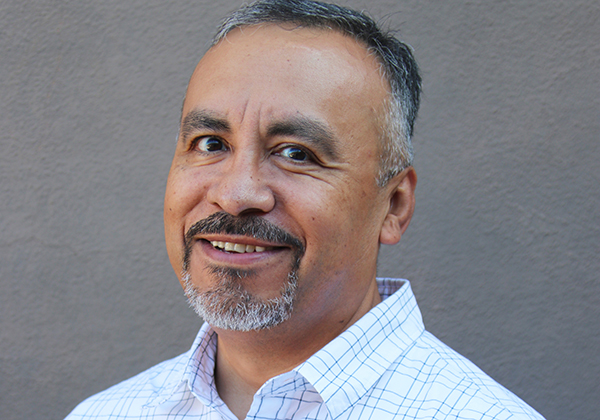Assistant Professor, Sociology
Born to Immigrant Farm Workers
Not only am I a first-generation college student, but I am also the first person in my family born in the United States. I come from a large family of immigrant farm workers. My family migrated from Mexico to the Imperial Valley. They worked in the agricultural fields of the Imperial Valley and Central Valley. I started to work out in the fields alongside my family when I became a teenager. In high school, my parents let me know that we wouldn't be able to afford for me to go to college. Nonetheless, I tried community college after graduating from high school where I failed miserably.
Ready to Try Community College Again
As an eighteen-year-old, I moved out on my own and managed to get a job at a printing press factory, where I worked the graveyard shift from 11 p.m. to 7 a.m., Monday through Friday, until I grew tired of going nowhere fast. I learned through the factory grapevine that the white employees doing the same job I was doing during the graveyard shift were being paid an hourly wage that was four times higher than what I was earning. I asked for a raise, which was not given to me. By age twenty-one, I quit my job at the printing press factor to try community college again. This time I was ready to learn. I ended having to take several remedial, non-college-credit Math and English courses in my first couple semesters. I didn't mind this because the years I spent away from school humbled me. I felt ready to accept the next challenge.
The Path to Cal Berkeley
I was working in construction and landscaping while attending Riverside Community College on the days/times when I was not in the classroom. Some family members who had originally worked in agriculture when they migrated from Mexico to the US ventured out to work construction or landscape maintenance in the cities. These family members connected me to work opportunities where I could go to school and earn a little money when I was not in the classroom. Of course, financial aid and scholarships helped. I struggled to balance going to work, attending school, studying, and doing school work. The experience of being out of an academic environment between ages 18-21, I think, showed me what life had in store if I gave up on my studies. My high diploma could only take me so far. I persevered and completed my IGETC in two years, then transferred to Cal Berkeley.
Building a Supportive Community at Cal Berkeley
At Cal I found a supportive environment on campus, in the sociology department, and at the Transfer Center where I met other transfer students. There were a few transfer students who shared my cultural background and similar personal biographies. We bonded and pushed each other to succeed. We navigated the challenges of completing our undergraduate degrees together. We offered one another moral support as we planned the next step after graduation. Four of us attended different graduate programs across the country. We still keep tabs on one another daily via group text.
Advice to Students
My advice to other first generation college students is to find solidarity with others who share similar backgrounds or professional goals. For years, I longed for a role model that would show me the map to find success. While I never found that role model, I did meet many peers and professors who believed in my success and motivated me to become a better person. Now that I'm older, I've come to believe that we first generation college students can be the role models we never had. If you're a first-generation college student, don't ever lose hope, keep moving forward towards your goals, and know that you are never alone.
